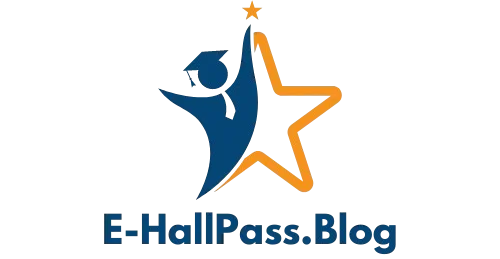Do You Need a Doctor’s Note for Work in California?

You know those mornings when your head is pounding, your voice is gone, and the idea of leaving bed feels like a bad plan? You’re sick, you text your manager, and then the question hits: do you actually need a doctor’s note for this? That’s where a lot of people in California get stuck—no one wants to sit in urgent care just to get a line on a piece of paper. Nakase Law Firm Inc. notes that after California natural disasters, questions about sick time and proof tend to spike because folks are juggling recovery, stress, and health all at once.
Now, here’s where the details start to matter. Some absences are simple and short; others trigger formal leave rules or safety checks. And since workplaces set their own policies on top of state and federal law, it helps to know the basics first. California Business Lawyer & Corporate Lawyer Inc. often fields the plain-spoken version of the big question: when is a doctor’s note required for work California, and how can employees avoid being treated unfairly when they’re genuinely ill?
The everyday sick day
Let’s start with the most common scenario. You catch a rough cold, you’re out for a day or two, and you use paid sick time. Under California’s sick leave rules, that kind of quick recovery usually doesn’t need paperwork. No one should have to pay a copay just to verify a 24-hour fever. So, for short stints, a heads-up to your manager often covers it.
Stretch that absence past three consecutive workdays, though, and the dynamic shifts. At that point, your employer can ask for a note to make sure the time off lines up with a real medical need. Think of it like a threshold: short and straightforward, no note; longer stretch, bring documentation.
When workplaces can ask for a note
Let’s make this real with a few quick sketches you might recognize from everyday life:
• Longer sickness: You’ve been down with bronchitis since Monday and you’re still not steady by Thursday. A note makes sense here, and most employers will ask for it.
• Patterns that raise eyebrows: A teammate always calls out before three-day weekends. A manager might request a note to keep things fair for the rest of the crew.
• Safety-sensitive roles: You’re a forklift operator coming back after surgery. A return-to-work release helps confirm you can lift, turn, and stay alert on the floor.
• Formal leave: If you’re on medical leave under state or federal law, certification is part of the process.
One more thing that eases a lot of tension: a note doesn’t have to spill your private details. In most cases, all it needs to say is that you were seen, the time frame you need, and any limits for returning. Clean, simple, and focused.
How FMLA and CFRA fit in
Now picture a tougher situation. Your partner needs treatment and you’re the one driving to appointments and keeping the household afloat. Or maybe you’ve got a knee that finally needs surgery and real time to heal. That’s where FMLA and CFRA come in. These laws protect your job during longer medical absences. They do, however, ask for certification. No way around it—this paperwork is the ticket that locks in your rights.
Here’s a common pattern: HR gives you a form, your provider fills it out, you submit it back, and your leave gets designated. Miss the deadline or skip the form, and you can lose those protections. It isn’t busywork; it’s the key that keeps your position waiting for you.
Disability and everyday adjustments
Some situations aren’t about time away as much as they are about making work doable. Picture a customer service rep whose migraines flare under bright lights, or a warehouse associate who needs a lifting limit for a few weeks after a strain. Under California’s rules, you can request changes that let you keep working. The employer can ask for a note that explains the limits and what helps, like dimmer lighting, more breaks, or different tasks for a while. The note should stick to function, not your entire medical story.
Good managers treat this as a two-way conversation: what the job requires, what your body can handle, and where those lines meet in a fair solution.
Privacy still counts
Plenty of people hesitate to hand over medical notes because privacy matters. That’s reasonable. The safeguard here is simple: keep health information separate from regular personnel files and treat it like confidential material. The right people see it, and only for the right reasons. Loose talk about someone’s diagnosis doesn’t just feel wrong—it can put the company at risk.
Paid Family Leave when you’re caring for someone else
Not all time off revolves around your own health. California’s Paid Family Leave helps when a loved one is seriously ill or when you’re bonding with a new baby. You do need medical certification for benefits, so expect a form that confirms the serious condition or the bonding period. Picture an adult daughter helping her mom after a hip replacement—she files a claim, attaches the provider’s statement, and gets partial wage replacement while she’s away from work.
Company policies and union rules
Here’s a spot where people sometimes get surprised. California sets the floor, but your handbook may add more detail. Some workplaces ask for a note after two days instead of three. A union contract might spell out timelines and steps that are slightly different. A quick glance at your handbook or CBA can save a lot of back-and-forth later. And if anything is unclear, asking HR for the written policy protects you from “I thought you knew” moments.
When trust breaks down
Real talk: not every claim is honest, and not every employer reacts fairly. If someone turns in a forged note, discipline can follow. On the flip side, if a manager ignores a legitimate note or punishes a worker who properly used leave, that can cross a legal line. The healthiest workplaces hold both truths: guard against gaming the system and respect people who play it straight.
Tips for workers that pay off in real life
Here’s what tends to work in day-to-day practice:
• Give a quick heads-up as soon as you know you’ll be out. A short message beats silence.
• Keep track of dates. If day three is approaching, schedule that visit so you’re ready if a note is requested.
• Save a copy of any note you submit. A photo in your phone is fine.
• Share only what’s needed. Timing and limits, not your full history.
A small story here: Mia, a barista, got the flu and was out Monday through Wednesday. She saw a provider on Tuesday, picked up a note that covered Monday to Wednesday, and texted a photo to her manager. She returned Thursday, still masked up, and had no issues. Clean process, zero drama.
Tips for employers that prevent headaches
Consistency is king. Put the policy in writing, train supervisors to follow it the same way for everyone, and keep medical info locked down. If you need a return-to-work release for particular jobs, say so clearly in the handbook. It helps employees plan and avoids last-minute arguments at the time clock.
Here’s another quick example: a small delivery company added a simple rule—absences past three days need a note; drivers returning after injuries need a release. Dispatchers and drivers got the same message, and HR stored notes in a secure folder. Fewer disputes, smoother returns.
Short answers to questions people ask a lot
Do I need a note for one sick day? Usually no.
What if I’m sick for most of the week? Plan on getting a note.
Can my boss demand my diagnosis? No—confirmation and timing are enough in most cases.
What if I’m taking care of a family member? Expect certification for formal leave or Paid Family Leave benefits.
What if my job involves heavy lifting or driving? A return-to-work release may be required for safety.
Bringing it all together
So where does this leave you on a rough Monday morning? Short illnesses often don’t need a note. Longer absences, formal leave, or safety concerns usually do. Employers get to ask for verification; employees get to keep details private. That’s the balance.
If you keep a simple routine—communicate early, know when the three-day mark triggers a note, and save copies—you’ll avoid most snags. And if you’re an employer, a clear policy plus steady follow-through keeps the team running and the drama low. In the end, people get sick, families need care, and work still has to function. With a bit of clarity and good faith on both sides, it does.






